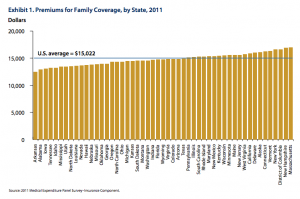The president is proposing a mix of mechanisms in order to bring down the tremendous national deficit and balance the budget over the next decade. Pledging this, Obama has acknowledged the growing problem with respect to financing Medicare and what it may mean as healthcare reform marches on in the coming decade. Under the rubric of cost controls, Obama proposes curbs in spending on the entitlement as well as cost-sharing methods involving the most expensive (and expansive) of Medicaid outlays: the care of children (CHIP) and the elderly.Total savings over the next decade — $100B over 10 years. With respect to block grants: just say no. His plans for Medicare solvency certainly don’t include privatization, or cost-shifting, for that matter. Embracing the nebulous “reining in the cost of prescription drugs for beneficiaries” theme, Obama projects a savings of twice as much for Medicare by 2020. (Remember, that by 2013, there will be some sort of payment oversight and advisory board created as part of the ACA that will be tasked with the duty of reducing costs that outpace Medicare spending limits.) The current budget-balancing darling of the GOP, Paul Ryan (R-WI), as a matter of course, totally rejects Medicare and Medicaid entitlement spending in their current forms and under Obama’s proposals — favoring the voucherization of the former and the use of grants to states from the latter. The House votes on budget matters Friday. The Dem-controlled Senate will ridicule it before voting it down. In a nutshell: The Ryan Plan for Medicaid and Medicare spending has no chance in short term healthcare budgetary reform, because, according to Obama, “Let me be absolutely clear. I will preserve these health-care programs as a promise we make to each other in this society.” Preservation in name only? Time will tell, but only if he is re-elected.







